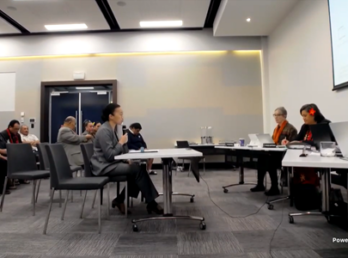Student Loan Arrests in New Zealand: When Should the IRD’s Power Be Exercised? articles
Date
18 Aug 2025
Related Expertise
The Inland Revenue Department’s (IRD) growing use of arrest powers against individuals with outstanding student loan debts has sparked intense debate. While the law grants the IRD authority to arrest those defaulting on overseas-based student loan repayments under certain conditions, it is crucial that this power is exercised with restraint, proportionality, and respect for due process.
Understanding the Legal Framework
The relevant legal provisions stem from the Student Loan Scheme Amendment Act 2014, which introduced offenses and enforcement mechanisms targeting overseas-based borrowers who default on their obligations.
Section 162A establishes the offense for defaulting on overseas-based repayment obligations. It states:
“Any individual who defaults on their overseas-based student loan repayment obligation and, after receiving a formal notification from the Commissioner confirming the default, knowingly fails or refuses to make reasonable efforts to either pay the outstanding amount or arrange repayment with the Inland Revenue Department by the specified due date commits an offence. Upon conviction, such individual is liable to a fine not exceeding $2,000.”
More significantly, Section 162B empowers a District Court Judge (or a Registrar in urgent cases) to issue a warrant for arrest if they are satisfied the individual has committed this offence and is about to leave or attempt to leave New Zealand. Upon arrest, the Court can impose a range of orders, including repayment arrangements, security provisions, travel restrictions, and surrender of travel documents.
This framework is intended to ensure that borrowers who have defaulted and are evading repayment obligations cannot use international travel as an escape route. Yet, the exercise of these powers must be reasonable and balanced.
The Need for Proportionality in Arrests
From my perspective , arrest should be a last resort and reserved for cases where the debt is significant and the debtor has been uncooperative despite reasonable efforts by the IRD to resolve the matter. The law’s emphasis on “reasonable efforts” to pay or arrange repayment is a critical threshold. Before resorting to arrest, the IRD must clearly demonstrate that the individual has had ample opportunity to engage constructively but has failed to do so.
Arresting someone over relatively small or borderline debts risks undermining public confidence in the fairness of enforcement and may cause undue hardship.
Access to Legal Advice Is Essential
Another cornerstone of just enforcement is ensuring that individuals subject to these proceedings have access to competent legal advice. Student loan law can be complex, with nuances around repayment obligations, penalties, and rights. Legal representatives who understand these complexities can help debtors negotiate realistic repayment plans, challenge improper claims, or seek court relief where appropriate.
Without proper legal guidance, borrowers may be unfairly caught up in the enforcement net, potentially facing arrest or travel bans without fully understanding their rights or options.

Real-World Cases Highlight the Stakes
A notable case reported by the New Zealand Herald involved a Kiwi living in Australia for decades who was arrested at the New Zealand border over an unpaid student loan debt of almost $58,000 — and still climbing daily.1 This case illustrates the serious consequences of default and the IRD’s readiness to use arrest powers when they believe the debtor is avoiding repayment.
Meanwhile, Radio New Zealand has reported on overseas Kiwis struggling with massive interest and penalties on unpaid student loans, exacerbating the difficulty of repayment and increasing risk of enforcement action.2
These examples underscore the human stories behind the legal provisions and the importance of a measured approach that balances debt recovery with fairness.
Conclusion
The IRD’s power to arrest for student loan repayment default exists to uphold the integrity of the student loan scheme and protect taxpayer interests. Nevertheless, this power must be wielded judiciously reserved for significant debts where the debtor has been given every chance to resolve their obligations without enforcement.
Equally, ensuring access to skilled legal counsel is non-negotiable, so debtors can navigate the complex legal landscape and achieve fair outcomes.
The law provides tools, but those tools must be used with care, fairness, and respect for individual circumstances.
Subscribe
Get insights sent direct to your email.


































